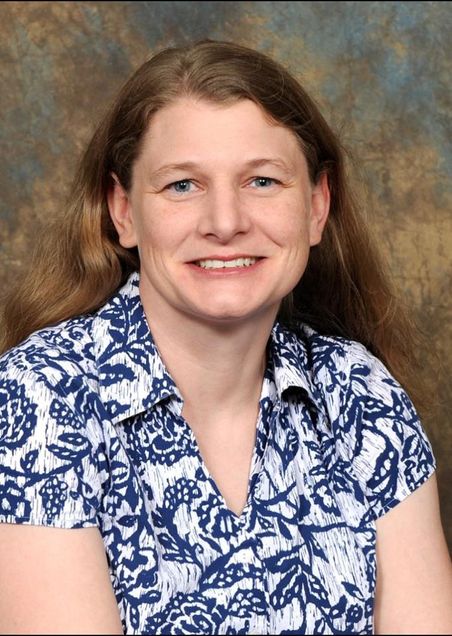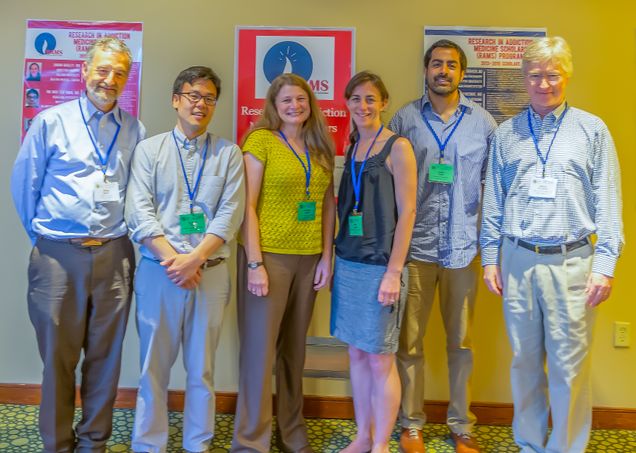RAMS Alumni Spotlight: Dr. Christine Wilder

In February 2021, Dr. Christine Wilder from the 1st RAMS Cohort (2012-2014) graciously answered several questions about herself and her work since completing the RAMS Program.
Christine Wilder, MD, MHES, is currently an Associate Professor and the Medical Director of the Addiction Sciences Division at the University of Cincinnati School of Medicine.
Read on to learn more about Christine!
Tell us about your clinical and research background. What led you to study substance use?
My clinical and research background is in psychiatry. Prior to doing research on addictions, I studied issues related to the intersection between serious mental illness and public health law, such as mandated outpatient treatment and psychiatric advance directives. I became interested in addictions while in residency after completing a rotation at a methadone clinic. All of my clinical work since residency has been in substance use treatment. My experience in the RAMS Program was my first exposure to addiction research.
In what ways did your involvement with the RAMS Program assist you with your research career?
The RAMS Program was very helpful to me with regards to making connections with researchers who had similar interests and also getting a lot of useful career guidance.
Did you move institutions post-fellowship? If so, what was the most challenging about this transition?
No, I didn’t. I had been out of residency for about 5 years before I started my fellowship, so I actually moved from an attending position in North Carolina to a fellowship in Cincinnati. I was planning to stay at the University of Cincinnati after fellowship in order to work with the Ohio Valley Node of the National Institute on Drug Abuse’s (NIDA) Clinical Trials Network (CTN), which I have done.
What would you consider an interesting or surprising finding from your research so far?
Although it is probably not surprising to most people who treat substance use disorders, I was pleased to be able to demonstrate that there was a dose dependent relationship between methadone dose and both treatment retention and negative urine drug screens in pregnant women. Although this has been demonstrated several times in the general population, I think it was very helpful to see it specifically for pregnancy, because physicians often decrease pregnant women’s methadone dose in an effort to avoid neonatal opioid withdrawal, rather than increasing the dose to help the women manage their cravings. I hope my finding helps discourage this practice.

Tell us about some directions you see your research going in.
I’m currently the site PI for a CTN study evaluating the effectiveness of injectable sustained release buprenorphine in pregnancy. I’ve also been helping to expand our participant-focused research for pregnant women with opioid use disorder by establishing a patient advisory group made up of moms who experienced pregnancy while on medications for addiction treatment (MAT).
What has been a particularly challenging IRB issue you have had recently?
None really, just have to turn everything in early and be willing to send amendments when needed.
Have you ever had an experience with a revise and resubmit decision or a rejection, and if so, what errors did you make and what did you change?
Absolutely, very often! I don’t think that revise and resubmit, or even outright rejection, necessarily means you made an error. It is an opportunity to get valuable feedback in order to improve your final paper. It’s also sometimes a demonstration of your desire to push yourself by submitting to a prominent journal or submitting for a different audience. For example, I’ve started submitting papers to obstetrics journals, and their focus is very different than addiction-specific journals. I’ve learned a lot from the feedback I got, specifically to better understand what outcomes and issues are important to OBGYN providers versus what I might think is most important as an addiction psychiatrist.
How has COVID-19 inspired you to focus on new work?
In Cincinnati, we have noticed that many more pregnant women are seeking methadone treatment versus buprenorphine treatment for their opioid use disorder since COVID started. This might be due to the relaxation of the rules around take-home methadone doses, or the lack of in person appointments in buprenorphine clinics, or something else. We are developing a survey to send to the Providers Clinical Support System (PCSS) network to find out if other MAT prescribers are seeing this as well.
Tell us one thing about yourself that readers might find interesting.
I can ride a unicycle!
Interview conducted by Sarah Vincent, BA